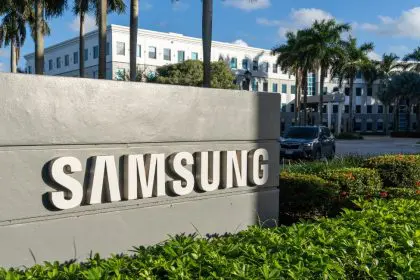Amazon workers are once again set to strike over better pay and work conditions this Black Friday (29.11.24).
Thousands of warehouse workers and delivery drivers for the world’s largest online retailer in the UK, US, Germany, Italy and Spain and more countries will stage walkouts on the firm’s biggest sale day of the year this week. Black Friday traditionally generates billions in revenue for Amazon, with last year’s sales exceeding $20 billion globally.
It marks the fourth year that the Make Amazon Pay group has protested on Black Friday. The movement has grown significantly since its inception, with participation increasing by 300% since the first strike.
Unions UNI Global Union and Progressive International are once again calling for more rights and safer conditions for the staff, as well as measures to tackle climate change. Recent studies have shown that Amazon‘s carbon footprint increased by 18% in the past year alone.
“This day of action grows every year because the movement to hold Amazon accountable keeps getting bigger and stronger,” Christy Hoffman, the general secretary of UNI Global Union, commented. “Workers know that it doesn’t matter what country you’re in or what your job title is, we are all united in the fight for higher wages, an end to unreasonable quotas, and a voice on the job. That’s what workers in Coventry are striking for, and that is why workers around the world are standing up to Make Amazon Pay.” The Coventry facility employs over 2,000 workers and has been a focal point for labor activism.
“This global day of action is more than a protest. It is a worldwide declaration that this age of abuse must end,” Varsha Gandikota-Nellutla, co-general coordinator of the Progressive International, added. Labor rights organizations report that warehouse workers handle an average of 300-400 items per hour under current quotas.
An Amazon UK spokesperson told The Independent: “These groups represent a variety of interests, and while we’re always listening and looking at ways to improve, we remain proud of the competitive pay, comprehensive benefits, and engaging, safe work experience we provide our teams.” The company states its average starting wage is $19 per hour in the US and £12.50 in the UK.
The planned strike comes amid increasing scrutiny of working conditions in Amazon’s facilities worldwide. Reports indicate that warehouse injury rates are 80% higher than industry standards, despite the company’s investments in safety measures.
Labor organizers expect this year’s action to be the largest yet, with participants from over 30 countries joining the protest. The movement has gained support from environmental groups, highlighting the intersection of worker rights and climate justice.
Recent data shows that Amazon‘s profits have soared by 240% since the pandemic began, while worker wages have increased by an average of just 27% during the same period. This disparity has become a central point of contention in the ongoing labor disputes.
The strike’s timing during Black Friday is strategic, as the shopping event typically accounts for approximately 30% of Amazon’s fourth-quarter sales. Analysts estimate that a successful strike could impact revenues by up to $500 million.
Worker representatives have outlined specific demands, including a 15% immediate wage increase, improved break schedules, and reduced performance monitoring. They also call for the company to commit to more aggressive climate goals.
Industry experts note that this coordinated international action represents a significant shift in labor organizing strategies, utilizing global solidarity to pressure multinational corporations. The movement has garnered support from over 80 organizations across six continents.
Studies show that high employee turnover at Amazon’s facilities costs the company approximately $8 billion annually. Critics argue that improving working conditions and compensation could actually reduce long-term operational costs.













